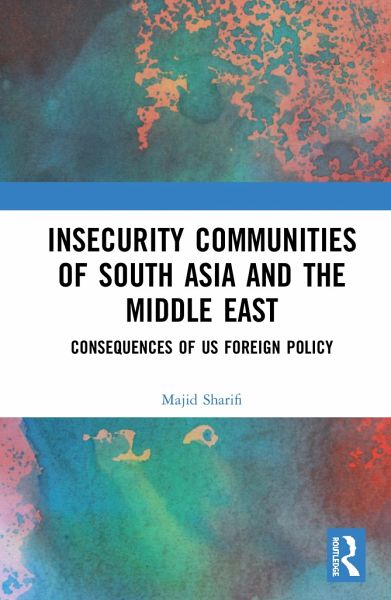
Insecurity Communities of South Asia and the Middle East
Consequences of US Foreign Policy
Versandkostenfrei!
Versandfertig in 1-2 Wochen
187,99 €
inkl. MwSt.
Weitere Ausgaben:

PAYBACK Punkte
94 °P sammeln!
This book critically examines how US foreign policy has produced a regional regime of instability and insecurity in South Asia and the Middle East.













